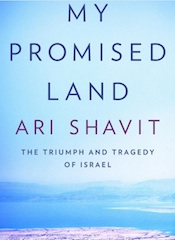It’s warm out! My kids and I are longing to be outside all the time – but we can’t. Not only is there still remote school, work and other obligations, but our neighbourhood is loud with construction noise. It’s hard to play in the yard when a table saw is screaming through stonework next door. It’s also a constant social-distancing game. Our corner lot is busy. People walk on the sidewalks on two sides, and construction workers on a third.
Some might respond with, “Well, move to the country, why don’t you?!” When we bought our house, it wasn’t so crowded, nor near to so much construction. We’ve made a life here. Moving requires a lot of upheaval. We want to keep our kids in the same school, too.
Like most things, we all must balance our desires and wants (for quiet, for more space, etc.) with our needs (relative safety, proximity to the basics like healthcare, school, work, groceries and a Jewish community). This balancing act is deeply personal. It’s not obvious from the outside what will work best to resolve this, and it’s not always clear “from the inside” either.
In my Talmud study recently in Tractate Yoma, I’ve been learning about how the high priest was to do the rituals of atonement on Yom Kippur on behalf of the Jewish people. It’s a series of very precise, concrete rituals. While deep meaning is assigned to some of these steps, the rabbis mostly want to parse what should be done to make the ritual work effective, as compared to making it invalid. They indicate that, if the high priest does it wrong, a year’s worth of sin remains for the entire Jewish people.
This kind of detailed ritual and accounting sounds like an enormous burden. The Temple high priest must have been under a lot of pressure! After all, when you consider the fate of Nadav and Avihu in Leviticus 10:1, who present “strange fire” as an offering to G-d and die. Or, if you consider Korach, who rises up against Moses – he and his buddies Dathan and Abiram and their families are destroyed when they rebel. In Numbers 16, the ground bursts open and swallows them up. Doing things wrong or inappropriately has consequences.
Some see that our tradition offers us a lot of fearmongering. There are those who worry that if they do things wrong – Jewishly, professionally, or other life choices – they will be literally “struck down.” Others don’t take any of it seriously and, as a result, their inability to abide by norms – public health orders, religious rules, societal ones, professional ones, etc. – results in a lot of problems for the rest of society.
What does this mean? If we turn it around and look for the gifts around us, instead of the potential hazards, perhaps things clear up and seem better. At least, searching for the gifts helps me cope.
We caught that upside recently – the gift, at 11:30 a.m. on a weekday, when, for whatever reason, the saws next door were quiet. The weather was sunny and cool. My twins stopped fighting. I looked up from the porch to find them in the yard, playing an ad hoc game of badminton, while keeping the dog occupied with her ball instead of fetching (and dismantling) the shuttlecock.
As warmer weather and, hopefully, healthier times are ahead, we have so many positive opportunities. It’s a rare moment where we can actually make personal, religious, social or political changes that might have seemed impossible before. Don’t get me wrong. There are definitely many pandemic moments when I’ve been caught in the detailed burdens or negativity – anxiety and fearmongering – struggling to see the good.
However, watching my kids laugh and chatter as they swung around their rackets, I was reminded of how lucky most of us actually are. Having a home, food and educational access, never mind green space, are great luxuries right now. Further, having a path forward, due to the COVID vaccines, also is a gift. Nobody has done everything right and, in the days of the Temple in Jerusalem, the high priest’s rituals served to help everyone process those mistakes, while we have different paths towards course correction and self-improvement today.
It’s important to recognize the flipside, which is that we haven’t done everything wrong, either. The warm and sunny days ahead can give us a bit of a break. It’s a window into whatever post-pandemic future lies ahead. Just as the warm weather provides us a bit of respite, so, too, do Jewish texts, which help us process our mistakes and concerns, balancing them with the joys, too.
Leonard Cohen’s “Hallelujah,” based on Psalm 150, reminds us that the Temple was not just a place for sin offerings. Psalm 150 is filled with music, instruments and happy expression, often in relief after making those Temple offerings. According to the Talmud, huge groups sang Hallel as part of their Passover lamb sacrifice. Their observance made the Temple Mount ring with communal song.
Sometimes, finishing the difficult rituals and processing our experiences and the anxiety can put the noise and the stress behind us. The exercise can offer us a chance to bask in the sunshine and the music. Let’s all hope for that gift of laughter, music and thanks, as we celebrate Canada’s short summer season and lean towards the light.
Joanne Seiff has written regularly for CBC Manitoba and various Jewish publications. She is the author of three books, including From the Outside In: Jewish Post Columns 2015-2016, a collection of essays available for digital download or as a paperback from Amazon. Check her out on Instagram @yrnspinner or at joanneseiff.blogspot.com.

